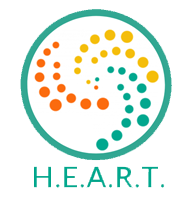Collegiate Recovery Programmes in the UK: Making Plans
14 December, 2022
Early in December, Recovery Connections CEO, Dot Smith, visited Texas Tech University with Dr Ed Day. Welcomed by Dr Tom Kimball and his team, the purpose of the visit was to develop future relationships and further develop a CRP model that fits UK culture.
Shortly after the Recovery Friendly Pledge was signed at The University of Sunderland, Recovery Connections CEO, Dot Smith, joined Dr Ed Day in taking the conversation about collegiate recovery in the UK, back to its US roots.
For one week in early December they were guests at Texas Tech University. Invited to The Center for Collegiate Recovery Communities, they worked on how to build the key relationships to sustain, and plan an effective model for UK Collegiate Recovery Programmes.
Also able to reflect on the progress made in the UK, over the last weeks and months, the visit was an opportunity to share experiences and look forward, in what is a time of purpose and optimism for UK Collegiate Recovery.
A little bit of background…
When Recovery Connections began working at Teesside University, in 2017, there was initially a full-time member of staff involved in the on-campus programme. This later transitioned to a model whereby students could attend groups on-site, access 1-2-1 support, and make use of Recovery Connections’ local timetable.
In July 2021, The University of Birmingham launched supported the launch of The Better Than Well Project, which immediately became a fully integrated part of the university. And now, with The University of Sunderland becoming recovery-friendly, a hybrid programme of Recovery Connections groups and services, and official, university-timetables activities, has begun.
Bringing it back to the US
So, Dot and Dr Ed Day had plenty of information to bring to the table at Texas Tech. Proving that both internal programmes, such as the Better Than Well project, and externally-facilitated programmes can both be effective, the next step is hopefully to support other universities in establishing programmes that work for their own students.
The visitors also had the opportunity to speak at Texas Tech’s Graduation Celebration dinner, while Dot also shared her experience of working with the university’s practicum students over the last five years. (For more information on the brilliant things Texas Tech students gets up to at Recovery Connections, read the accounts of Ad and Steph, from summer ‘22).
And finally, Dot was invited to speak in lectures and attend seminars, during which the cultural differences between US and UK recovery, and collegiate recovery were discussed. During our interview with Dr Tom Kimball, last month, he cited cultural differences as one of the barriers in establishing and growing collegiate recovery programmes. But he also mentioned the benefits of experiencing such cultural differences for his students.
So, it seems that after several years of slow progress in the growth of collegiate recovery in the UK, we’re finally at a point where the challenges we face are not only evident, and being overcome, but also creating fabulous opportunities for growth. 2023 is already looking like a big year for the movement in the UK.
Until next year, Texas!
